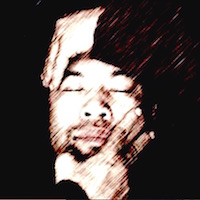We were sitting in our kitchen throwing out ridiculous party ideas and I expressed it would be funny to form a circle and have everyone apologize for something they had done.
I’d forgotten the idea by the time the party got going.
Then at a moment when a little bit of quiet descended, soft like a leaf, onto the party, my friend Sage, who hadn’t forgotten, said, “Why don’t we go around and say what we are sorry for.”
We formed a circle, and she started by apologizing for there not being curtains in the rooms. The next person apologized for cursing someone who had cut him off in traffic that morning. Followed by a third person apologizing for introducing a political discussion (that got slightly heated) at the party.
Then Sage, feeling that we could take advantage of the energy of everyone in the circle, suggested that we all say, “We forgive you” to the person after they admitted/confessed/expressed themselves. We started saying that in unison, which sounded a little bit cult-ish at first.
But after we did it a couple of times, it began to feel really beautiful.
We were giving real forgiveness.
As we continued around the circle, it felt people were coming from a more emotional place.
There’s a power to be given a space in which we can express our regrets, to be released from that place where we may have become secretive with our past, wracked with guilt, numb from emotions or combative with defensiveness.
As people spoke and listened, a deeper shift began to move in the room, something powerful was unfolding. The collective field became nectar, rich and full. After the circle, a participant got up and called someone up to express their apologies.
This is beautiful, simple and powerful technique—you can do with your friends at a party, as a workshop and while just hanging out.
A “Sorry Circle” is a place where people can go to, to express their regrets and apologies and experience some healing around it. A network of Sorry Circles, in a town, can help in transforming the community’s emotional health.
The Sorry Circles can help with growing the restorative justice movement, a movement which is about repairing the harm caused by “offenders,” bringing the community and all parties involved together to listen, empathize, forgive, and make reparations.
An example of this practice being the Restorative Circles, which provides a process in which a community can begin to support the “victims” and dialogue with the “offenders” and then to eventually bring them into a circle together for a facilitated process. One of the difficulties for the restorative justice process is getting “offenders” to a place where they feel comfortable in coming into a circle.
We, as a culture, have no real compassionate norms in place for how to deal with people who we felt have wronged others. A network of Sorry Circles can help change this culture, making it clearer that we have all played the role of “offender” and that there are ways for “offenders” to come back into harmony
with the community.
A network of Sorry Circles and Restorative Circles can alter the foundational relational constructs of society, so that it will begin the paradigm shift from the current top-down cop-lawyer-court-jail punitive justice, to a more bottom-up, compassionate restorative justice system.
~
Relephant read:
How to Say “I’m Sorry” for Real.
~
Author: Alpha Lo
Editor: Ashleigh Hitchcock
Photo: flickr











Read 0 comments and reply